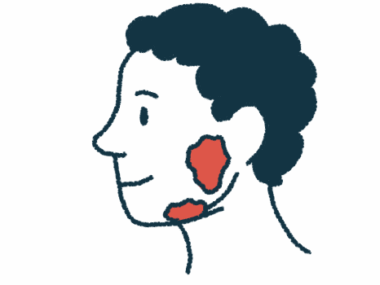Prostate cancer causes man’s unusual case of ectopic Cushing’s
Report calls for timely intervention to avoid life-threatening complications
Written by |

A 76-year-old man in Greece developed ectopic Cushing’s syndrome due to an advanced prostate cancer that started producing the adrenocorticotropic hormone (ACTH), leading to unusual symptoms such as muscle weakness, slowed thinking, and low potassium levels.
Despite immediate treatment, his clinical condition worsened, and he eventually died. It’s a case that calls attention to the need for timely diagnosis and intervention to avoid life-threatening complications, researchers say.
The man’s case was described in the study “Ectopic Cushing syndrome in metastatic castration‑resistant prostate cancer: A case report and review of literature,” which was published in Oncology Letters.
Cushing’s syndrome is an umbrella term used to describe any condition marked by high levels of cortisol, a hormone produced by the adrenal glands located atop the kidneys. Some tumors can cause Cushing’s syndrome by being a source of ACTH, an hormone that triggers the adrenal glands to release cortisol.
The most common form of Cushing’s syndrome is Cushing’s disease, which occurs when excess ACTH stems from a tumor in the brain’s pituitary gland. When the source of ACTH is a tumor outside the pituitary gland, however, the disease is called ectopic Cushing’s syndrome.
Prostate cancer can cause ectopic Cushing’s in rare cases
Prostate cancer is a common type of malignant tumor, accounting for more than 900,000 cases per year. It can sometimes cause ectopic Cushing’s syndrome, although that’s rare, with fewer than 50 such cases reported in the medical literature.
In the report, researchers describe the case of an elderly man who went to the emergency department because of sudden weakness in his legs. He was diagnosed in 2019 with metastatic prostate cancer, meaning the cancer had spread beyond the prostate.
After three years of prostate cancer-targeting treatments, his levels of prostate-specific antigen (PSA), a biomarker for prostate cancer, dropped to nearly zero. Despite a good initial response to treatment, imaging scans showed the cancer had spread to the spine and the left side of the hip bone, causing lower back pain. His PSA had increased slightly, and he started radiation therapy and was scheduled to start chemotherapy.
When he arrived at the emergency department with weakness in his legs, he looked pale and showed signs of emotional instability and slowed thinking. He had signs of tissue damage and an electrocardiogram also revealed an irregular heartbeat (arrhythmia).
The man had severe hypokalemia, or low blood potassium levels, which can disrupt the normal heart’s electrical activity and lead to arrhythmia, so he was given potassium supplements to correct his potassium levels and prevent heart problems.
Tests to find out why his potassium level was low showed very high cortisol and ACTH levels in the blood. His 24-hour urinary-free cortisol level, measured in samples of urine collected over the course of one day, was also very high.
Normal brain scan indicated excess ACTH was not coming from pituitary gland
The patient underwent a brain scan, which turned out to be normal, indicating excess ACTH was coming from somewhere other than the pituitary gland, likely from his prostate cancer. “Ectopic ACTH production was considered the most likely diagnosis,” the researchers wrote.
Because the man’s condition was worsening quickly, he was started on symptomatic treatment with oral potassium supplements and spironolactone, a potassium-sparing diuretic, to prevent potassium from dropping too low.
Doctors also gave him ketoconazole and Metopirone (metyrapone), which are approved in Europe to lower cortisol levels and treat Cushing’s syndrome. Blood thinners were also administered to prevent blood clots. After 10 days of treatment, his cortisol and ACTH levels went down, and his potassium levels stabilized.
“The patient remained under close monitoring throughout the course of his treatment and did not experience any treatment-related adverse events, including hepatotoxicity [liver damage], which is most commonly reported,” the researchers wrote.
The man was started on a chemotherapy regimen for his prostate cancer, and his PSA levels declined to about half after three cycles of chemotherapy. Despite treatment, the man died three months after being diagnosed with ectopic Cushing’s syndrome.
“Ectopic [Cushing’s syndrome] can be a clinical manifestation of prostate cancer,” the researchers wrote, noting that “it may present with atypical clinical findings” and “requires timely diagnosis and aggressive treatment to avoid life-threatening complications.”







